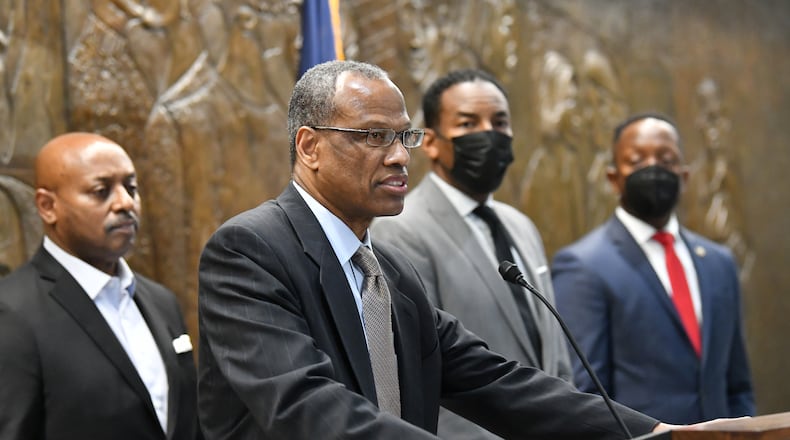Atlanta’s public housing agency officially signed off on the specifics of a settlement agreement Wednesday that would end the city’s yearslong legal dispute with a prominent developer over dozens of acres of vacant land that could produce affordable housing.
The agreement between the Atlanta Housing Authority and The Integral Group sets the stage for crews to start building on more than 80 acres of land at four sites across the city. The deal must still be approved by federal authorities.
Officials have not yet said how much of the new construction will consist of affordable housing, but leaders signaled they plan to build for a range of incomes.
“Getting out of this lawsuit is an important milestone to reach our goal” of providing affordable housing, board Chair Christopher Edwards said before the vote.
Under the settlement, Integral is set to retain control of 54 acres of land and pay Atlanta Housing $26 million. That land is located at the former Capitol, Carver, Grady, and Harris home sites, old public housing complexes that the city demolished.
The Atlanta Housing Authority will get control of 19 acres.
The agency and Integral will jointly develop an additional eight acres of land at the former Carver Homes site into “mixed-income housing with a strong affordability component, the settlement states. And seven acres located near Capitol Gateway will be preserved as park space.
“The settlement now clears the way for us to get back to work in our hometown and to restore our productive partnership with AH,” Integral CEO Egbert Perry said in a statement after the vote. He thanked Mayor Andre Dickens for “his urging and guidance” to resolve the dispute.
Over two decades ago, Integral was working with the city to build housing on the former public housing sites.
But the partnership hit a snag in 2013, leading to a heated dispute between then-Mayor Kasim Reed and Perry over who would control and build on the remaining undeveloped land. Their conflict led to a series of lawsuits beginning in 2017.
A settlement proposed in 2020 would’ve surrendered the agency’s control of all the land to Integral for $22 million, and AHA would’ve paid Perry’s $1.8 million legal fees. But the authority board rejected the deal after being told the units would still be too expensive for the agency’s low-income residents.
Both parties had been gearing up for a trial that would start in March — until Dickens announced in early February that his office had helped negotiate the latest agreement. The AH board gave their informal stamp of approval on the settlement framework that night.
“I might’ve lost that bet if you had told me that six weeks into the new administration, we would have a final settlement,” board member Robert Highsmith said during the new meeting.
The deal now goes to the U.S. Department of Housing and Urban Development, which has to greenlight the agreement before it goes into effect.
“The business of Atlanta Housing should be building affordable housing and placing families in them,” Dickens said in a statement. “I’ve said that we will build and preserve 20,000 units of affordable housing and today’s vote clears the path for AH to do just that.”
About the Author
The Latest
Featured


